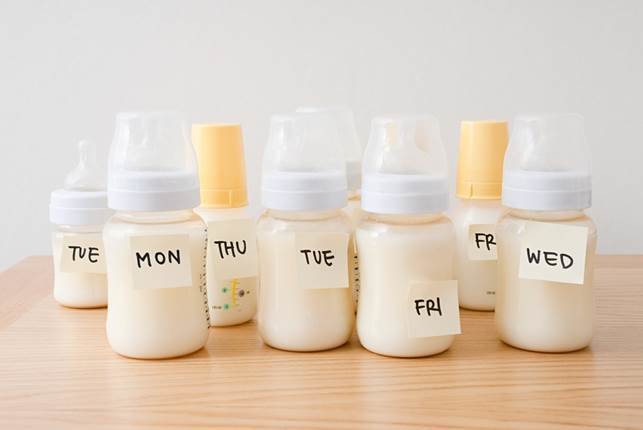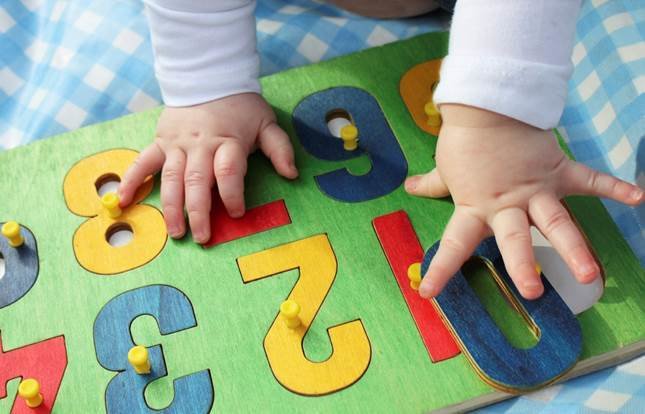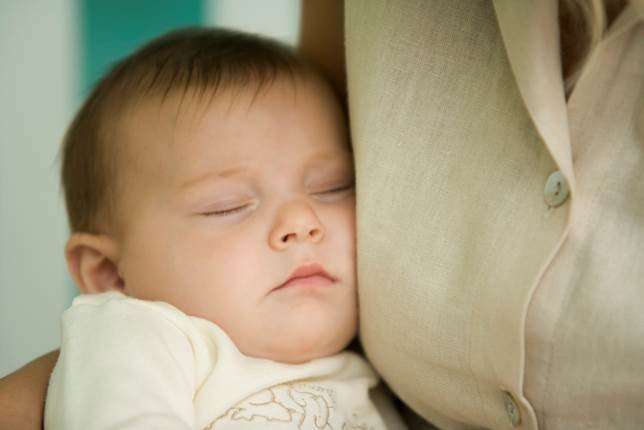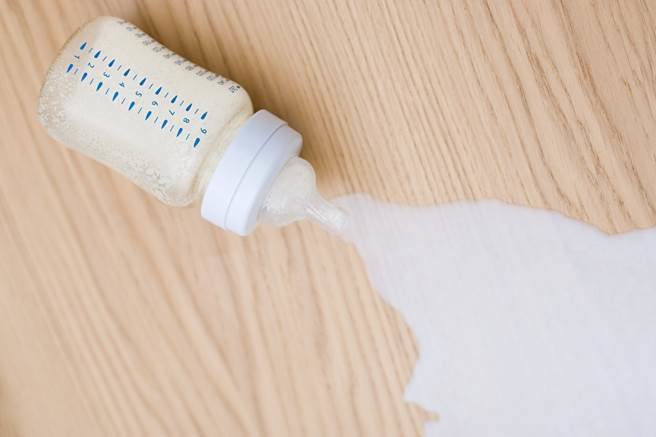Sure, most moms have heard about the benefits of breastfeeding, from boosting a baby's immunity to bonding between mother and child. Yet a slew of new scientific research suggests that this barely scratches the surface of all the amazing things breast milk can do. Here's a full rundown of its astonishing abilities, which will give you a new-found respect for breast milk (not to mention your own body for putting it all together).
Wow, fact #9 explains so much about why breastfeeders slim down so fast post-pregnancy!
Image © Wavebreak Media Ltd./Corbis
Breast Milk Wakes Baby Up

That's right, your breast milk acts a lot like a cup of coffee, rousing baby from a good night's sleep. According to a study published in Nutritional Neuroscience, throughout a 24-hour period, breast milk changes its composition of nucleotides, chemicals that affect baby's sleepiness (or lack thereof). Two of these spike during daytime hours, which help perk baby up. Take-home lesson: If you pump, feed the baby milk that coincides with the time of day it's expressed; if you give your baby "morning" milk at night, you might be looking at a bright-eyed baby … at 2 a.m.!
Your Breast Milk Knows the Age of Your Baby

Since newborns have different nutritional needs than toddlers (who need more fat and carbs to help them tear through your house like a tornado), your breast milk will actually change its composition of fat, carbs, and protein to suit a baby's needs during that stage. Now that's a personalized beverage.
Breast Milk Guards Your Baby Girl From Getting Breast Cancer

You've probably heard that breastfeeding reduces your risk of breast cancer, and that's great in its own right. But here's an amazing bonus: breastfeeding also protects your baby girl, reducing the risk that she'll one day get breast cancer by as much as 25 percent.
Breast Milk Raises Your Baby’s IQ

A slew of studies prove that women who breastfeed have smarter kids. In fact, one study found that nursing for longer than 6 months ratchets up the child's IQ by 3.8 points on average. And while some may argue this is due to the fact that breastfeeding moms generally have more education and income, other studies say it's due to the breast milk — most likely the fatty acids, which super-charge the brain.
Breast Milk Is a Pain Reliever

Is your baby wailing away due to a tummyache or scrape and you're at a loss on how to make him feel better? Try breastfeeding, for starters. One study by Mr. Sinai Hospital found that infants who are breastfed during and after painful procedures — delivered in the form of pin pricks to draw blood — recover faster than those who were merely swaddled. Clearly cuddling with mom and nursing is soothing in and of itself, but researchers also suspect that breast milk triggers the production of endorphins (the body's feel-good natural painkillers). Sure beats having to give your baby medicine.
Breast Milk Reduces Baby's Fever After Vaccination

Hearing baby shriek when he gets his shots is bad enough … worse yet, immunizations are often followed by a fever. But breastfed babies have about half the risk of spiking a fever post-vaccination as their formula-fed peers. Researchers theorize that some ingredient in breast milk may help reduce swelling at the shot spot (and swelling typically leads to fever).
Breast Milk Keeps Kids Healthy

Kids are facing an obesity epidemic, and long before you vow to steer clear of fast food joints when your baby gets older, you can breastfeed to achieve the same goals. One study found that only 2.8 percent of breastfed baby end up obese as children, compared to nearly double that (4.5 percent) for bottle feeders. The reason? For one, breast milk is the perfectly balanced meal with just the right amount of fat, carbs, and calories; no formula could ever come close. Two, chugging from a fast-flowing bottle prevents babies from regulating how much they gulp down; as a result, they tend to overeat. Breastfed babies, on the other hand, only eat how much they want, when they want, and are thus better able to throw in the towel (or dinner napkin) once they feel full.
Breast Milk Puts Babies to Sleep

Ahh, nothing spells relief like a baby who's drifted off to sleep for the night (or most of it, anyway). And it turns out breast milk helps knock baby out! Studies show that nighttime breast milk is highest in melatonin, a chemical produced in the body at night that lulls us to sleep. Problem is, babies don't have their melatonin production cycle down yet. So breast milk helps them get with the program: day, wake, night, sleep.
One Day of Breast Milk = Walking 8 Miles

Making breast milk is hard work! In fact, the amount of energy it takes your body to produce enough breast milk for your baby for one day is the equivalent of walking 8 miles. No wonder the post-pregnancy pounds melt off when you nurse.
Breast Milk Is More Expensive Than Oil

They don't call it "liquid gold" for nothing: bought from a milk bank, human breast milk costs around $4 per ounce. That's about 200 times the price of crude oil. So go ahead and pat yourself on the back for creating this precious resource!




